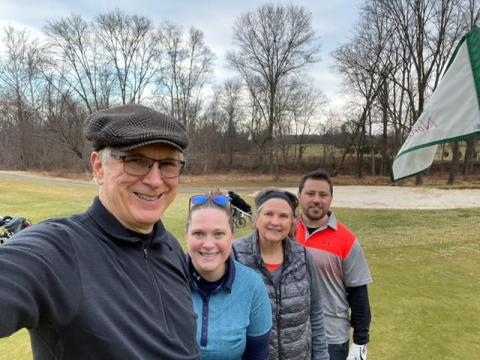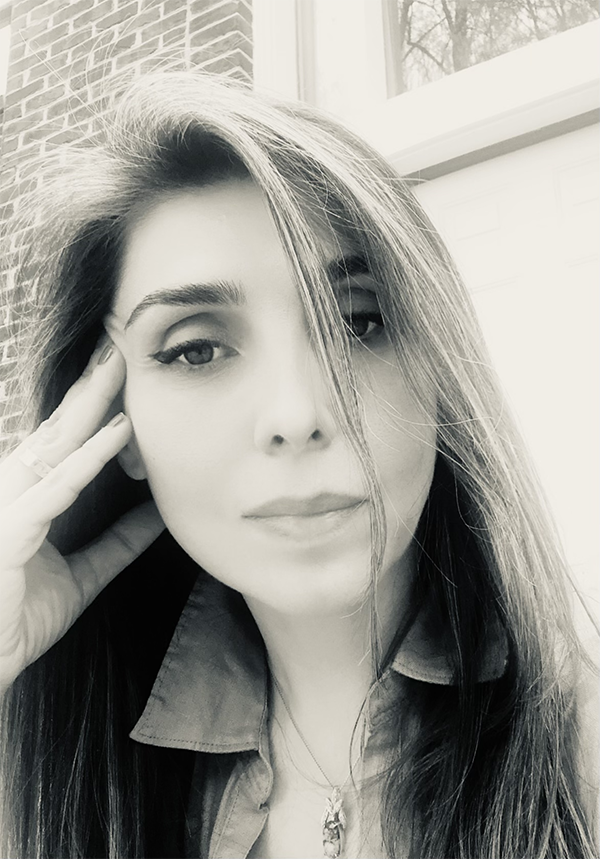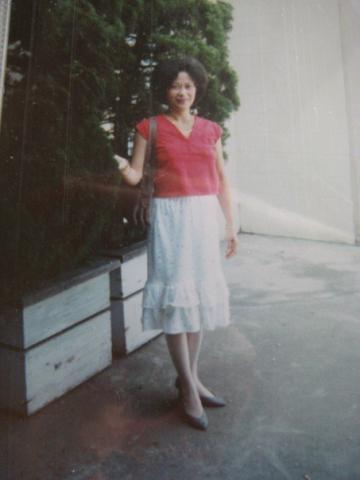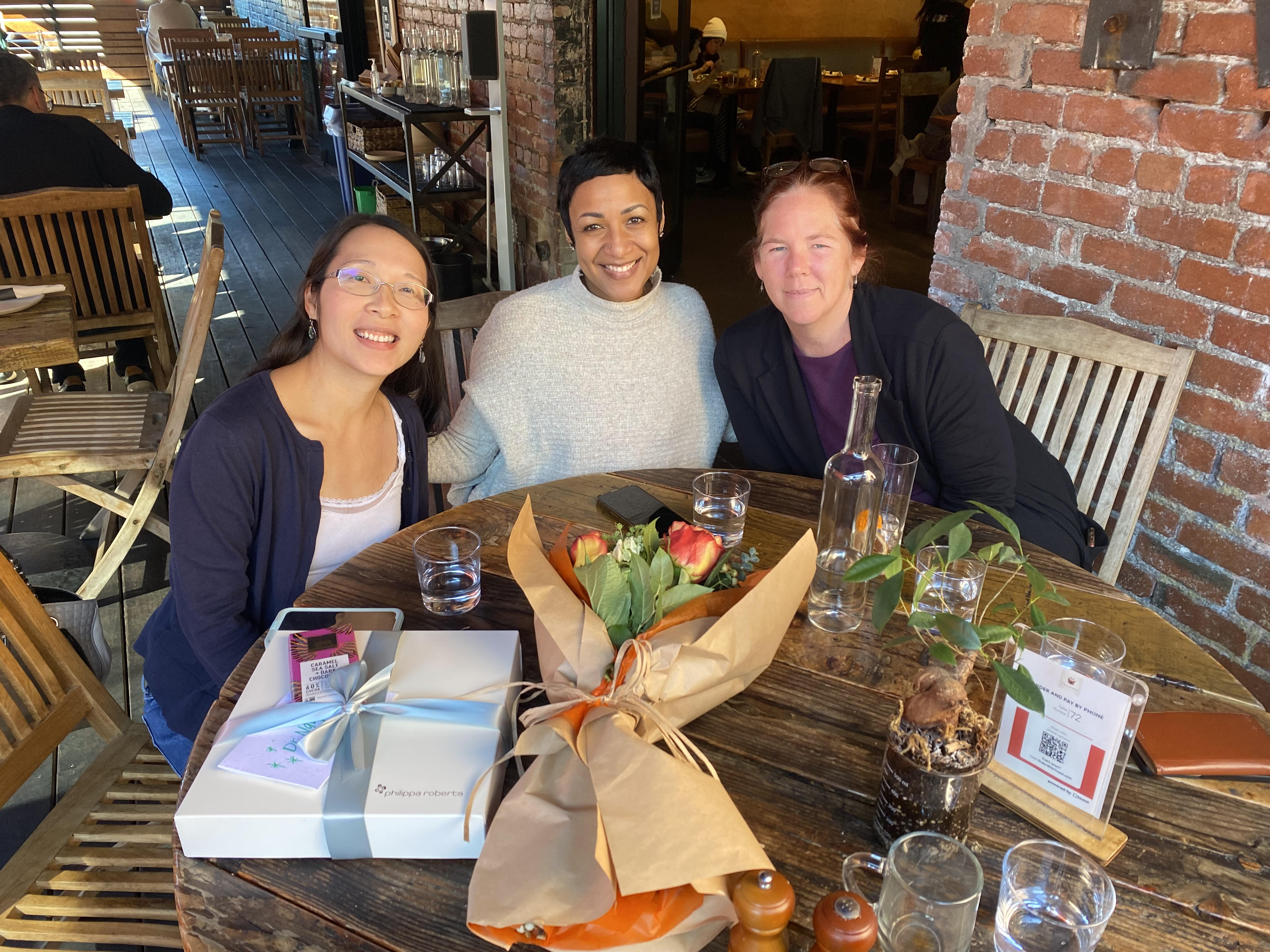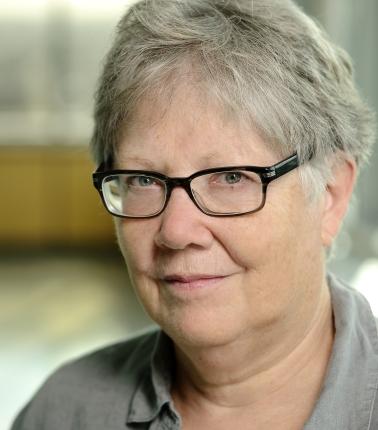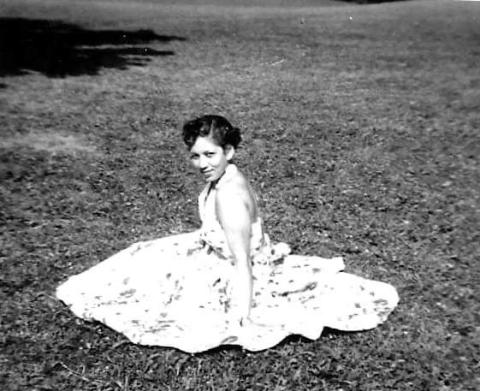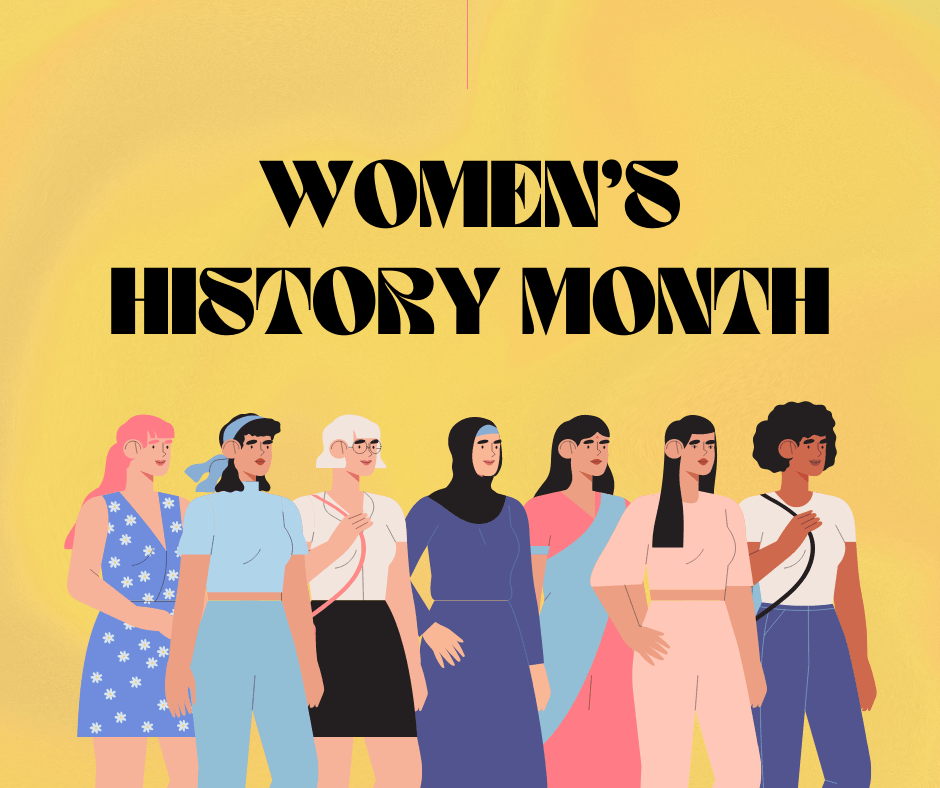
This Women's History Month, we asked a few of our stellar women faculty members to talk about women in their professional and personal lives who have been inspiring to them, and to offer advice to women currently in the public health field.
Elizabeth (Liz) Aparicio is an assistant professor of Behavioral and Community Health. She also serves as director of the Community THRIVES lab and deputy director of the UMD Prevention Research Center.
"My mother, Cindy Norell, has been a steadfast support and inspiration in my life. She was born in rural Iowa and, together with my father, had big dreams for leaving the world better than she found it. As a musician, teacher, and parent, she touched thousands of children’s lives. One of her elementary music students even joined my research lab as an undergrad public health science student, and reflected fondly on her time with Mrs. Norell. ..."
Read more below...
My mother, Cindy Norell, has been a steadfast support and inspiration in my life. She was born in rural Iowa and, together with my father, had big dreams for leaving the world better than she found it. As a musician, teacher, and parent, she touched thousands of children’s lives. One of her elementary music students even joined my research lab as an undergrad public health science student, and reflected fondly on her time with Mrs. Norell.
My mom is a fierce advocate. She represented her fellow teachers as their union representative, wrote grants to build up after school music programs that gave second graders the chance to write and perform their own musicals in her Title I school, and poured into each child a deep sense of their worth and belonging. She taught me that students need to know that you love them before they’ll be ready to learn. My mom never brought work home – she worked hard at work, and worked hard at home, separating the two realms of her life. I remember her starting to make dinner on the stove with her coat still on at the end of the day, beginning and ending each day with prayer, and prioritizing rest. She filled our home and her classroom with laughter and joy, and taught me how to let go at the end of the day. “Tomorrow is another day,” she would tell me and my sisters.
To women in the public health field today: you are a precious person in this work. Taking care of yourself and surrounding yourself with people who are for you, who are in the work with you, is so important. What you bring is so unique; you will make a positive impact everywhere you go. Just take the next best step and give yourself grace – results will follow. In the words of Audre Lorde, “When I dare to be powerful, to use my strength in the service of my vision, then it becomes less important whether I am afraid.” Let’s take chances, make mistakes, learn from them, and keep growing together.
Photo: Liz Aparicio (second from left) with her dad (left), mom Cindy (second from right) and husband (right).
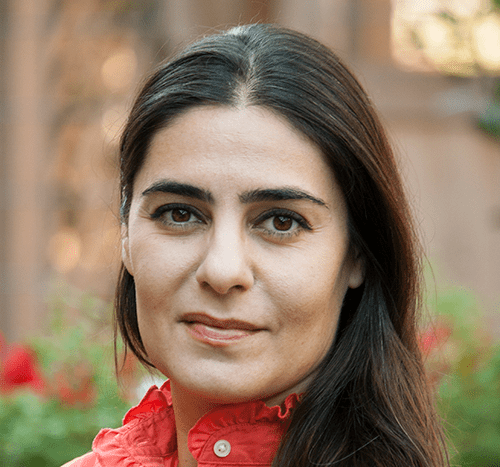
Negin Fouladi is an associate professor in the Department of Health Policy and Management. She was recently awarded the Provost’s Excellence Award for Professional Track Faculty for her outstanding contributions and accomplishments in teaching.
"My older sister Nazli Fouladi is the strongest woman I know! She is an incredibly kind and patient mother balancing her home life, professional life as a clinical psychologist, and everything in between like a pro."
Read more below.
My older sister Nazli Fouladi is the strongest woman I know! She is an incredibly kind and patient mother balancing her home life, professional life as a clinical psychologist, and everything in between like a pro.
I admire my sister Nazli because she is the glue that keeps our family together. Being from a region of the world torn by violent war and displaced like many families in the early 80's, she was the one I looked to for comfort when I couldn't comprehend what was happening as a child. She basically raised younger siblings while a teenager herself, and as an adult I recognize the immense pressure that was placed on her due to unforeseen life circumstances and the resulting emotional impact. She continues to be selfless and always encouraging even in the worst times. She is truly a remarkable woman and person overall! We continue to see horrific times with many people and nations impacted by conflict and war, which drastically change the trajectory of lives. I hope individuals who have been or are currently impacted have a pillar like my sister Nazli to help them through the time.
To women in public health: Know your worth and don't minimize accomplishments, which is a tendency for most of us!
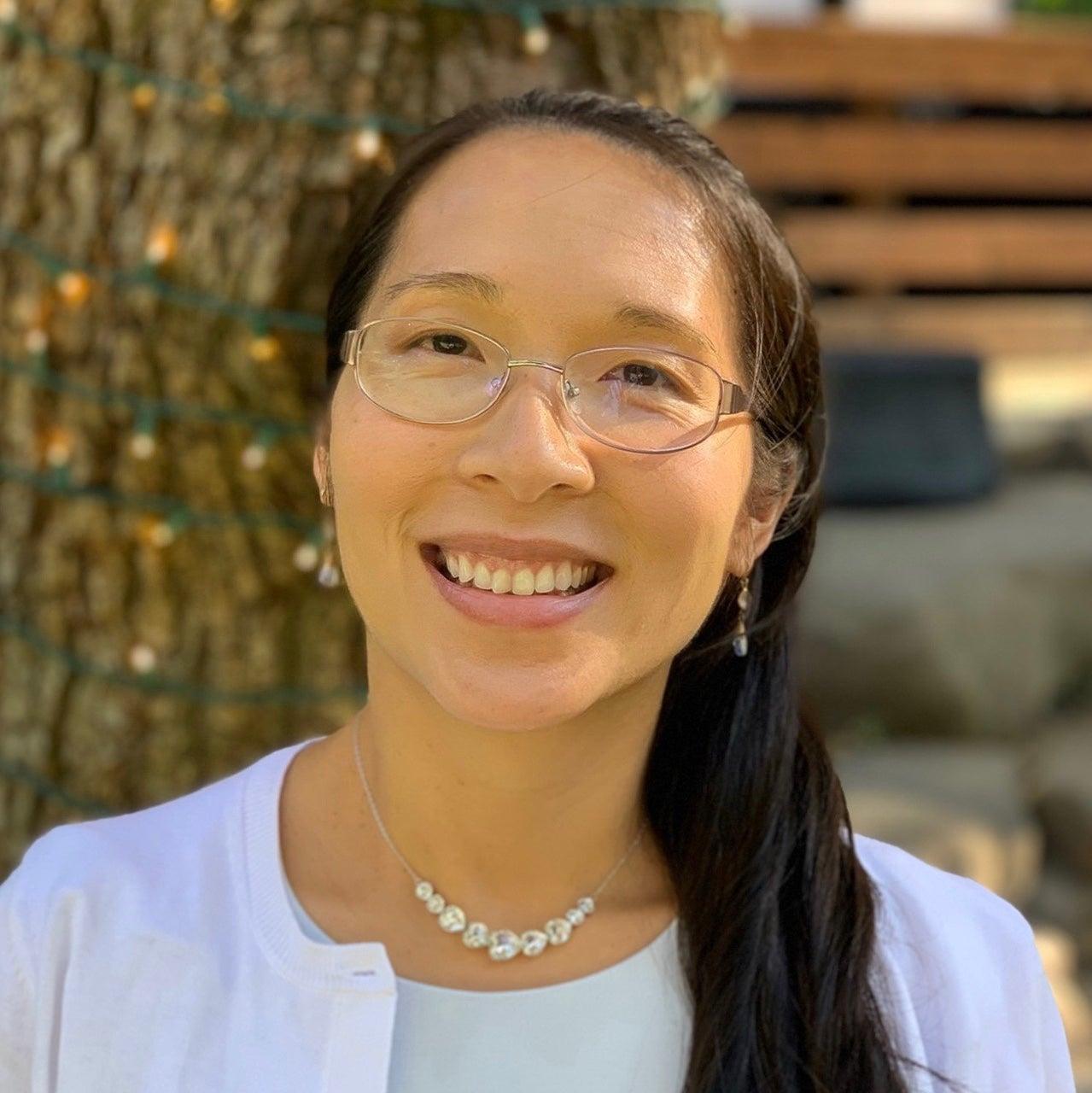
Thu Nguyen is an associate professor in the department of Epidemiology and Biostatistics. Her research focuses on the impact of racism and discrimination on continuing health inequities.
"My life has been shaped by three women. A key person in my life has been my mom, Ms. Hong Nguyen. She did not complete high school, but when we immigrated to the US from Vietnam when I was five without my dad, without really formal education here at all, she was able to raise me and my sister. She provided me an example of strength, perseverance, resourcefulness and resilience. You need all of those things in academia because it is such a long road. There are times when you just need to hold on to the belief that you have strength and you are able to continue. She was able to raise us and keep us safe and allow us to choose our careers and develop the life that we did. During the challenging times in my life in academia, I think about the strength she had, and it keeps me going."
Read more below.
My life has been shaped by three women. A key person in my life has been my mom, Ms. Hong Nguyen. She did not complete high school, but when we immigrated to the US from Vietnam when I was five without my dad, without really formal education here at all, she was able to raise me and my sister. She provided me an example of strength, perseverance, resourcefulness and resilience. You need all of those things in academia because it is such a long road. There are times when you just need to hold on to the belief that you have strength and you are able to continue. She was able to raise us and keep us safe and allow us to choose our careers and develop the life that we did. During the challenging times in my life in academia, I think about the strength she had, and it keeps me going. Throughout my doctoral program, my advisor, Dr. M. Maria Glymour pushed me to do things that I didn’t have a clue about. She believed in me, and she had high expectations for me. At the end of my doctoral program, I completed a dissertation I am very proud of. The value was not only skills I learned, but the act of learning new things all the time, figuring it out, and reaching out to people was a precious gift. It was learning to be in a space of confusion and that not knowing is okay. During my postdoc, I met Dr. Amani Allen, who taught me about the importance of community in scholarship. When I participated in Dr. Allen’s research group, it wasn't just us as researchers, it was us as people. When I conduct research now with my students, I always try to bring strength and perseverance and create that community. Sometimes the research process is very lonely and isolating. The research is important, but creating that supportive and positive environment is just as important. To women in public health: Women in public health dominate in numbers, but we are less represented in leadership positions. As a student, in my early career, and even now I struggle with sometimes questioning whether I know enough, or I'm smart enough, or I'm capable enough. Maybe some of that has to do with my upbringing. I grew up poor. I am an immigrant raised by a single mom. Academia can be scary. I think it’s important to recognize that everyone feels insecure sometimes, but I believe everybody has a perspective, experience, and skills to offer. Take up space and embrace the valuable perspective that you bring.
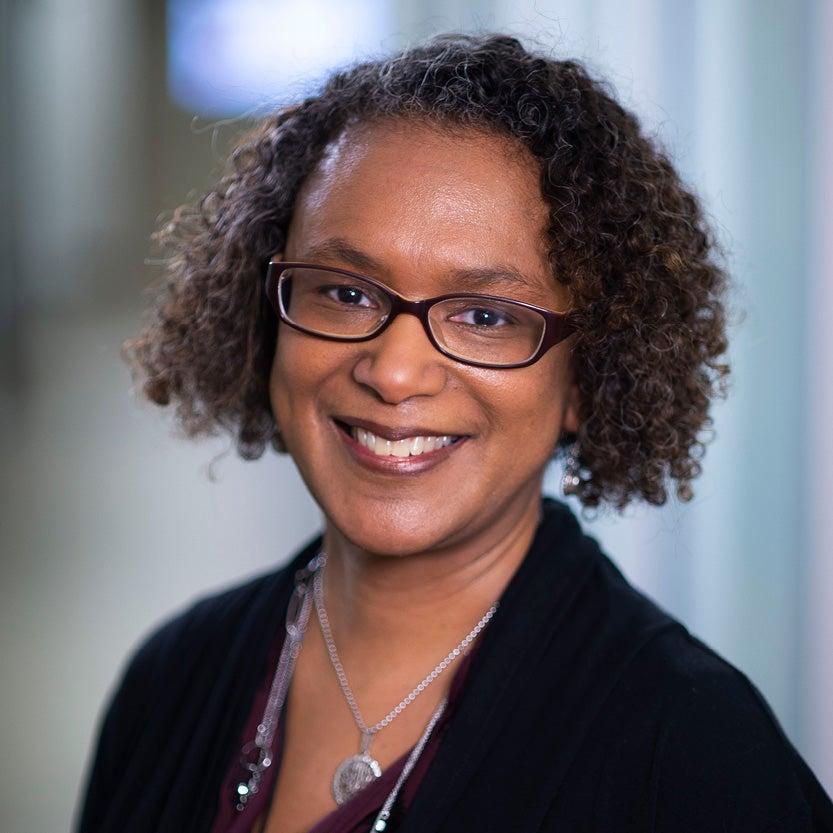
Devon Payne-Sturges is an associate professor with the Maryland Institute for Applied Environmental Health. Her commentary on racism and environmental health sciences was recently selected by Environmental Health Perspectives as one of the top papers of 2021.
"A woman who has inspired me is Dr. Ellen Silbergeld, Professor Emeritus at Johns Hopkins Bloomberg School of Public Health and a MacArthur Foundation "Genius" Fellow for her work translating science into policy.
I was a student in her graduate environmental and occupational health policy course. She was my mentor during my DrPH program at Hopkins and she continued as a mentor after I graduated. She’s fierce. Her story is inspiring for anyone who wants to use science for good."
Read more below.
A woman who has inspired me is Dr. Ellen Silbergeld, Professor Emeritus at Johns Hopkins Bloomberg School of Public Health and a MacArthur Foundation "Genius" Fellow for her work translating science into policy.
I was a student in her graduate environmental and occupational health policy course. She was my mentor during my DrPH program at Hopkins and she continued as a mentor after I graduated. She’s fierce. Her story is inspiring for anyone who wants to use science for good.
I have modeled my course on environmental health policy after hers, where I emphasize critical analysis of risk assessment in environmental policy decision-making. Last year I published a paper analyzing why the U.S. Environmental Protection Agency had not developed coherent strategies to mitigate cumulative environmental health risks impacting communities of color and low income communities. For this paper, my collaborator and I examined US EPA documents dating from the late 1980s housed at the National Archives. And in those materials we found notes and comments from Dr. Silbergeld when she served on a peer review panel for US EPA risk assessment guidance! She was so prescient about the policy challenges US EPA would continue to face on addressing health risks from multiple chemical exposures and was critical of how EPA had swept it under the rug, even back then. We are living with this legacy today.
To women in public health: Know your stuff (analytical methods and how and when to apply them). Be Fierce. Don’t shy away from challenging conventional thinking. Be Curious.
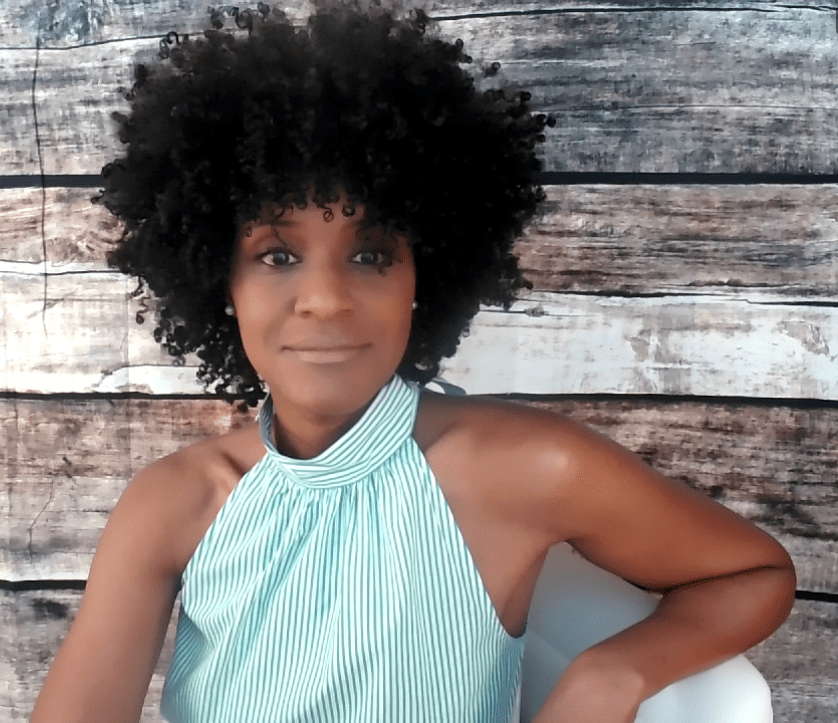
Jennifer Roberts is an associate professor of Kinesiology specializing in how built, social and natural environments impact physical activity and health outcomes in marginalized communities.
"My Aunt Peg (Margaret Eleanor Cooper-Wilkinson) was one of the most dynamic and inspirational women in my life. She was the best friend of my grandmother when they were growing up as young girls in Ohio. By the time I was born, they both had migrated to Buffalo, NY and Aunt Peg, a beautician trained at Wilberforce University, then opened her own business, 'Ebony Beauty Salon', in the 1940s. My Aunt Peg spoiled me with her love and tenderness and taught me so much through her life stories. It was not until I grew up that I fully appreciated how her presence in my life was so powerful. She was a proud and independent woman and when she entered a room you could not help but to see her shine."
Read more below.
My Aunt Peg (Margaret Eleanor Cooper-Wilkinson) was one of the most dynamic and inspirational women in my life. She was the best friend of my grandmother when they were growing up as young girls in Ohio. By the time I was born, they both had migrated to Buffalo, NY and Aunt Peg, a beautician trained at Wilberforce University, then opened her own business, 'Ebony Beauty Salon', in the 1940s. My Aunt Peg spoiled me with her love and tenderness and taught me so much through her life stories. It was not until I grew up that I fully appreciated how her presence in my life was so powerful. She was a proud and independent woman and when she entered a room you could not help but to see her shine.
The fact that my Aunt Peg was able to open and operate her own business in the 1940s as a Black woman is what I find inspirational. Growing up and seeing her as an example made me think that there was nothing that we (Black Folk; Women Folk) could not achieve. Aunt Peg as a mother figure was also an inspiration. She and my Uncle Dave never had children of their own, but her mothering reached across families, neighborhoods and generations of children.
I just hope everyone has an Aunt Peg in their life. And if you do, give her a hug today and say thank you. My Aunt Peg went to glory nearly 10 years ago and I miss her dearly. But I am happy that I get to celebrate her spirit during this Women's History Month.
To women in public health: The advice I have for women in the public health field is really advice for all women and that is 'don't take sugar from anyone'. Hopefully, you know what I really mean to say.
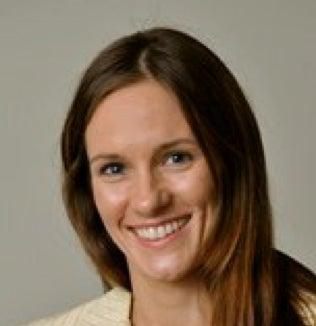
Marie Thoma is an associate professor in the Department of Family Science. Her research focuses on maternal and infant health, birth spacing, and infertility with the goal of allowing individuals of all backgrounds to equitably and safely achieve their reproductive goals.
"I want to first acknowledge the mothers and aunties in my family, who provide continued support and inspiration. I come from a family of matriarchs and it is no wonder why I went into the field of maternal/women’s health, because I saw how societal systems and structures impacted their ability to fully thrive. Within my academic career, I have been so grateful to my female mentors who have provided (and still do) inspiration at different points in my career – Drs. Maria Wawer, Germaine Buck Louis, Elaine Anderson, and Sandra Quinn."
I want to first acknowledge the mothers and aunties in my family, who provide continued support and inspiration. I come from a family of matriarchs and it is no wonder why I went into the field of maternal/women’s health, because I saw how societal systems and structures impacted their ability to fully thrive. Within my academic career, I have been so grateful to my female mentors who have provided (and still do) inspiration at different points in my career – Drs. Maria Wawer, Germaine Buck Louis, Elaine Anderson, and Sandra Quinn.
What is so inspirational is that they have created a path that is uniquely their own (there isn’t one way to do this), they continue to advocate for other women in the field, and actively work to change systems to support them. What is equally inspirational is their life outside of research/academia – as avid film and theater goers, performers, singers, sailors, travelers, and community builders. They embrace it all and encourage me to do the same!
To women in public health: Building on this inspiration, I often advise other womxn that there is no one path to the same goal. This has been the case for me and I believe that each experience takes you closer to what you were meant to do (even if that wasn’t in your original plan). We could all benefit from this type of mentorship in our lives and that I hope to pay it forward.
